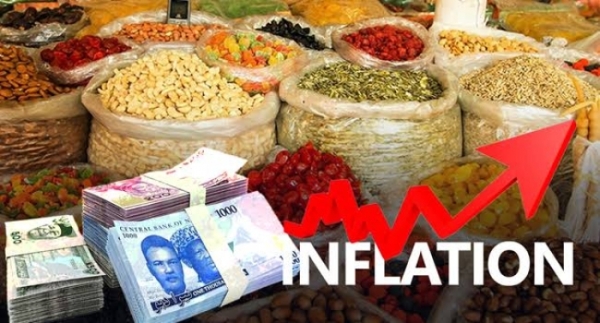The sustained rise in the prices of goods and services in Nigeria is driven by a complex interplay of domestic economic challenges, monetary policy decisions, and external factors. The trends identified by manufacturers, agricultural experts, and economic analysts reveal that inflationary pressures are likely to persist, affecting both the productive and service sectors. This analysis will explore the various underlying causes and how they are expected to shape price trends in Nigeria.
1. Monetary Policy and Rising Interest Rates
The continuous increase in the Monetary Policy Rate (MPR) by the Central Bank of Nigeria (CBN), now at 27.25%, has had a ripple effect across the Nigerian economy. The Manufacturers Association of Nigeria (MAN) has expressed concerns that higher borrowing costs, which now exceed 35%, are compounding the challenges faced by the manufacturing sector. With the cost of credit rising, manufacturers are forced to either raise prices to cover costs or reduce production capacity, exacerbating supply shortages.
As production costs rise, the prices of manufactured goods inevitably increase, further eroding consumer purchasing power. This cost-push inflation is particularly damaging for a country like Nigeria, where many industries depend on imports for raw materials. As the Naira continues to depreciate, manufacturers pay more for inputs, worsening the inflationary spiral.
2. Depressed Consumer Demand and Inventory Buildup
Despite rising production costs, many manufacturers face the challenge of declining consumer demand due to reduced purchasing power. With inflation soaring, consumers are spending more on essential goods like food and fuel, leaving less disposable income for other goods and services. As a result, manufacturers are accumulating unsold inventory, which reached ₦1.24 trillion in the first half of 2024—a significant increase from ₦869.37 billion at the end of 2023.
This situation is unsustainable for the manufacturing sector, as companies must either continue raising prices to offset losses or cut production, leading to layoffs and potential business closures. The resulting unemployment would further suppress demand, creating a vicious cycle of stagnating economic activity and rising inflation.
3. Food Inflation and Agricultural Challenges
The agricultural sector, a crucial component of Nigeria’s economy, is also grappling with significant challenges that are contributing to rising food prices. Worsening insecurity, particularly in the northern regions, has severely disrupted farming activities, reducing both output and productivity. Armed conflicts and banditry have prevented farmers from accessing their lands, while attacks on rural communities have driven many farmers away from agricultural activities altogether.
Moreover, Nigeria suffers from a lack of adequate storage and processing facilities. According to the Food and Agriculture Organisation (FAO), Nigeria loses up to 50% of its agricultural produce post-harvest due to poor infrastructure, inadequate storage, and inefficient food processing methods. This wastage leads to shortages, driving up the prices of staple foods such as grains, fruits, and vegetables. Even during harvest seasons, when prices typically ease, the lack of proper storage ensures that these gains are short-lived, with prices quickly rebounding after seasonal abundance passes.
The combination of insecurity, high post-harvest losses, and inefficient food distribution systems guarantees that food prices will remain elevated in the near and medium term, putting further pressure on household budgets.
4. The Depreciation of the Naira and Smuggling
One of the most significant factors driving inflation in Nigeria is the persistent depreciation of the Naira, particularly against stronger currencies like the CFA franc in neighboring countries. As the Naira weakens, the price differential between Nigeria and its neighbors increases, creating opportunities for smugglers to move food items and other essential goods out of Nigeria to sell them at higher prices.
This cross-border smuggling exacerbates local shortages, further driving up domestic prices. With the Naira currently trading at around ₦1,700/$ in the parallel market, there is little hope for a near-term recovery. The government’s decision to float the Naira in 2023, while aimed at addressing exchange rate imbalances, has led to increased volatility in the currency market, with speculative activities and weak foreign investment inflows adding to the pressure on the Naira.
Without robust interventions to stabilize the currency, such as increasing foreign reserves or attracting substantial foreign investment, the exchange rate is likely to remain under pressure. This continued depreciation will ensure that imported goods, including food items and raw materials for manufacturing, remain expensive, further fueling inflation.
5. Energy Costs and Petrol Price Increases
Energy prices, particularly petrol, have been a key driver of inflation in Nigeria. The removal of petrol subsidies by the Tinubu administration has led to a sharp increase in fuel prices, with petrol now selling for around ₦1,000 per liter—up from ₦187 per liter when the administration took office. Given that transportation costs account for a significant portion of the cost structure for many goods and services, the impact on inflation has been profound.
Higher fuel prices have not only driven up the cost of transporting goods but also increased the operating costs for small businesses and households that rely on petrol-powered generators due to the country’s unreliable electricity supply. With global oil prices likely to remain high due to geopolitical tensions and the depreciation of the Naira against the U.S. dollar, petrol prices are unlikely to decline soon, ensuring that energy costs will continue to be a major contributor to inflation.
6. Structural Economic Issues and Foreign Exchange Shortages
Nigeria’s heavy dependence on crude oil exports and the chronic underperformance of the oil sector, due in part to oil theft and declining production, have reduced the country’s foreign exchange earnings. This, in turn, limits the ability of the Central Bank of Nigeria (CBN) to stabilize the Naira through interventions in the foreign exchange market.
With dwindling foreign reserves and limited inflows from non-oil exports, Nigeria has been unable to meet the foreign currency needs of manufacturers and importers. The resulting scarcity of foreign exchange has led to higher costs for imported goods, from industrial machinery to everyday consumer products. Until Nigeria can diversify its export base and increase foreign exchange earnings, these challenges will persist, keeping the pressure on prices.


